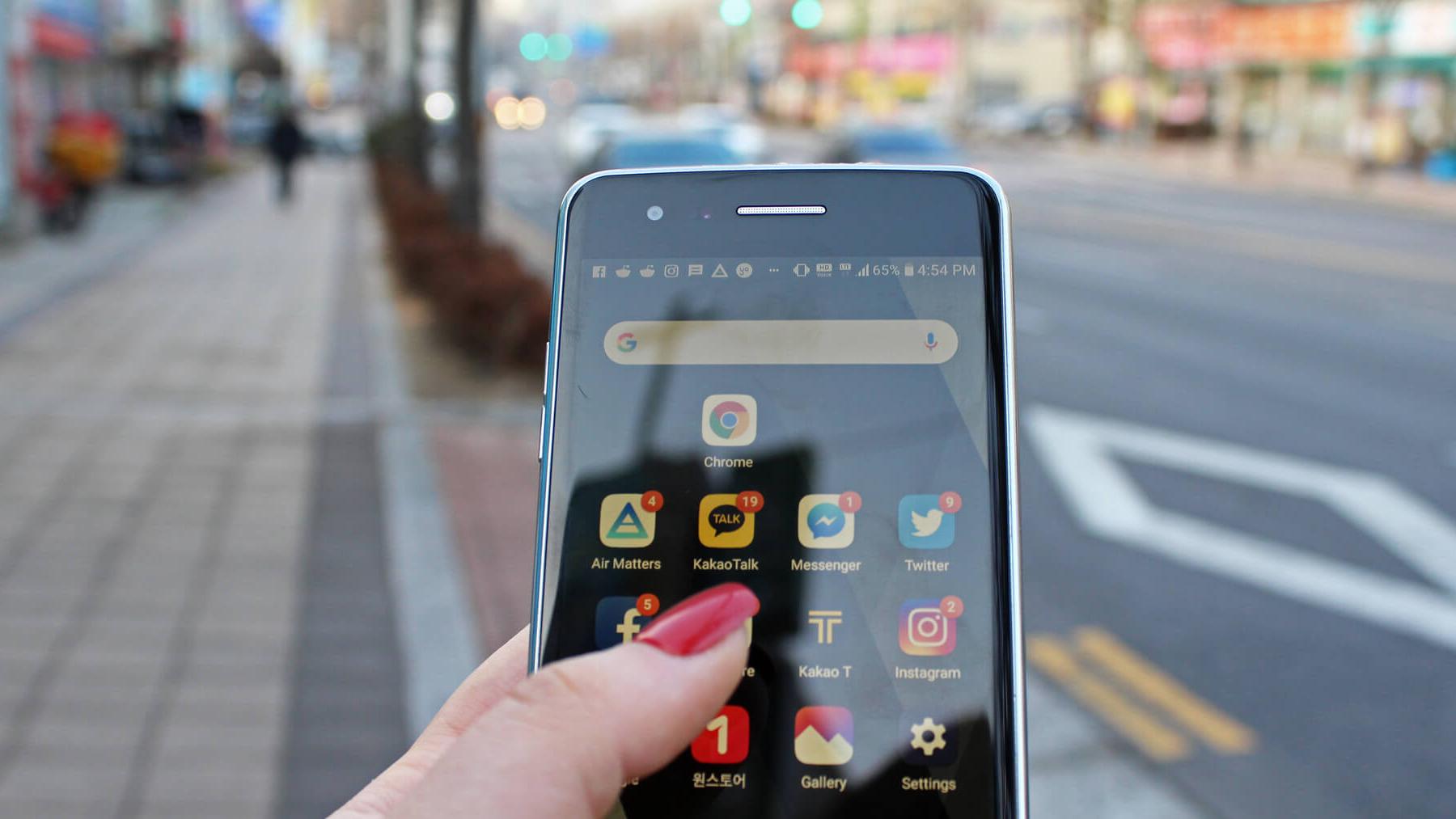Trump’s trade war with China drives silent wedge between US and South Korea
South Korea is known for its advanced technology, with Korean semiconductor chips used in smartphones counting for 26 percent of the country’s total exports. But now, the demand for chips are slipping — and so is South Korea’s economy.
At first glance, things are looking good on the Korean peninsula: US President Donald Trump and North Korean leader Kim Jong-un are planning their second face-to-face meeting, which is slated to happen in Vietnam sometime in February.
South Korean President Moon Jae-in has called it an opportunity that “will never come again.” After all, it’s not just a matter of world peace — Moon is hoping the summit will unlock opportunities to collaborate with North Korea’s economy. That could mean re-opening joint factories or building train lines that will carry the Russian gasoline South.
“We cannot afford to let this opportunity slip,” Moon said in a translated tweet on Jan. 21. “We have to build unwavering peace and strive to ensure that peace brings opportunities for our economy.”
But as Trump and Moon work the negotiating table, there’s sort of a diplomatic elephant in the room: President Trump’s trade war with China is doling blows to South Korea’s already-struggling economy — and that’s pretty much the opposite of what “allies” are supposed to do.
“The US is such an important player in peace and good relations in East Asia,” said C. Harrison Kim, an assistant professor at the University of Hawaii at Manoa and author of “Heroes and Toilers: Work as Life in Postwar North Korea.”
“From that aspect, the US really needs to pay more attention to maintaining some kind of consistency in the rhetoric and the image it wants to portray in the world. And with South Korea, it’s not exactly doing that,” Kim said.
Here’s what’s happening
It’s no secret that the US and China are edging toward a grave trade war. Last September, the Trump administration slapped new tariffs on $200 billion of Chinese imported goods, partially in response to China’s theft of American intellectual property in the form of technology. This is expected to drive up the price of basic items like electronics, beer and clothing in the United States — but in South Korea, the squeeze is even tighter.
That’s because South Korea heavily relies on exporting semiconductor chips to China, which are then incorporated into the assembly of cell phones (semiconductor chips make up 26 percent of South Korea’s exports). Therefore, levied taxes on Chinese goods imported into the US means even less demand for chips exported from Seoul to China. In December 2018 alone, South Korean chip output fell about 5 percent while overall exports to China dropped roughly 14 percent. And in the event of a “full-blown trade war,” South Korea can expect a projected loss of $36.7 billion.
“President Trump does not care about the byproduct of the G2 trade war affecting US allies.”
It’s not the only reason why South Korea’s economy is sputtering. But still, “there’s no denying that [the trade war] has an impact,” said Lisa Collins, fellow and Korea chair at the Center for Strategic and International Studies. “The US and Chinese markets are the largest in the world, and China is South Korea’s primary trading partner.”
“President Trump does not care about the byproduct of the G2 trade war affecting US allies,” said Jang Ji-Hyang, a North Korea expert and the Seoul-based director of the Middle East and North Africa Center at the Asan Institute for Policy Studies. “And yes, the current Moon government is so focused on the peace of the [Korean] peninsula that smooth relations between the US and North Korea are quite important.”

Peer pressure
South Koreans have long feared that Trump’s bluster with China would lead to losses (and for months, it has). But President Moon — who is becoming increasingly unpopular over the nation’s economic woes — may have no choice but to save face.
“South Korea is dependent on the United States for security benefits and security relations, so when relations between the US and China are bad or deteriorating, South Korea has to walk a very tight line,” Collins said. “They’re so focused on making progress in inter-Korean relations and they need US support on that, so they don’t really want to rock the boat.”
“President Trump has been pretty clear about his desire to lead with America-first policies and to protect US interests above everything else,” Collins added. “It’s definitely different than previous administrations, but South Koreans are willing to deal with that.”
“South Korea is dependent on the United States for security benefits and security relations, so when relations between the US and China are bad or deteriorating, South Korea has to walk a very tight line.”
But as things continue to get sticky between the US and China, South Korea must paradoxically please both Trump and Xi Jinping. Look no further than last year — when the Moon administration upset Beijing by installing the US-designed THAAD missile defense system — to see why South Korea must artfully balance both sides. China feared the Terminal High-Altitude Area Defence system could track its military activities, and the fallout was huge. South Korea suffered a massive drop in Chinese tourists and boycotts shuttered Korean stores in Chinese cities.
“China retaliated against South Korea in a lot of ways that hit the economy hard, and South Korea had to learn from that,” Collins said. “They are very cognizant now of the balance they have to strike between China and the United States.”
Pushing for peace
Trade tensions could drive a further wedge between the US and North Korea in the weeks running up to the next big summit.
“Any kind of tension that the White House creates with Asia kind of prolongs this diplomatic difficulty that the US has with North Korea,” Kim said. “Just like South Korea, [North Korea] needs to maintain and balance its relationship with China. So, when the US-China relationship is going sour, I think it becomes hard for North Korea.”
But for now, South Koreans are forced to bear the burden of being caught between its two biggest trading partners. Nevertheless, it’s nothing the country isn’t used to — and there’s still hope that Moon can ease tensions between the US and China.
“South Korea has always been maneuvering artfully between Japan, China and the US. In a way, this could be an advantage for South Korea,” Kim said. “They could say, ‘Look, why don’t you go through us? We can be the most neutral mediators.’”
